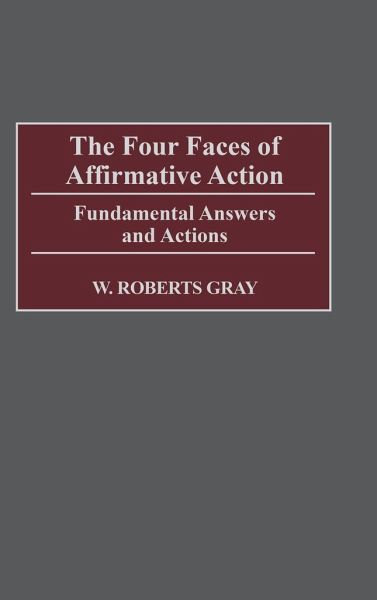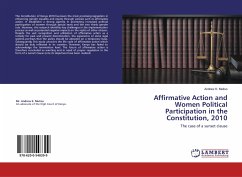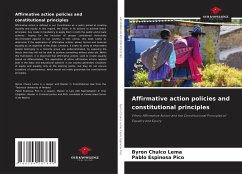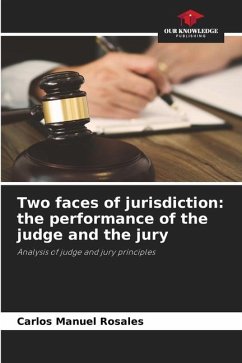
The Four Faces of Affirmative Action
Fundamental Answers and Actions
Versandkostenfrei!
Versandfertig in 1-2 Wochen
87,99 €
inkl. MwSt.

PAYBACK Punkte
44 °P sammeln!
Affirmative action can generally be described as preferential treatment for minorities and women in jobs, educational opportunities, and receipt of other benefits. However, its origin and meaning remain relatively obscure. This study is designed to provide clarity and to strengthen the position of affirmative action amidst the controversy that surrounds it. Under attack across the nation, affirmative action is at a nadir. Gray contends that the grounds for defending affirmative action are based in ideas of social justice and can be found in the writings of philosophers, polemicists, and judges...
Affirmative action can generally be described as preferential treatment for minorities and women in jobs, educational opportunities, and receipt of other benefits. However, its origin and meaning remain relatively obscure. This study is designed to provide clarity and to strengthen the position of affirmative action amidst the controversy that surrounds it. Under attack across the nation, affirmative action is at a nadir. Gray contends that the grounds for defending affirmative action are based in ideas of social justice and can be found in the writings of philosophers, polemicists, and judges. One can organize these ideas according to four modes of thought which allow exhaustive treatment of the subject. Each mode of thought is concisely explained and then developed through the analysis of current philosophical thought; next, it is applied to the case law. This study boldly defines affirmative action as part of the quest for social justice. It takes affirmative action away from the tort law of causation by going as far back as Aristotle to show that private corrective justice is not an apt model for affirmative action. Gray concludes that such action is best promoted by the voices of diversity and rhetoric. Thus, dialogue and debate remain the best support for affirmative action.














